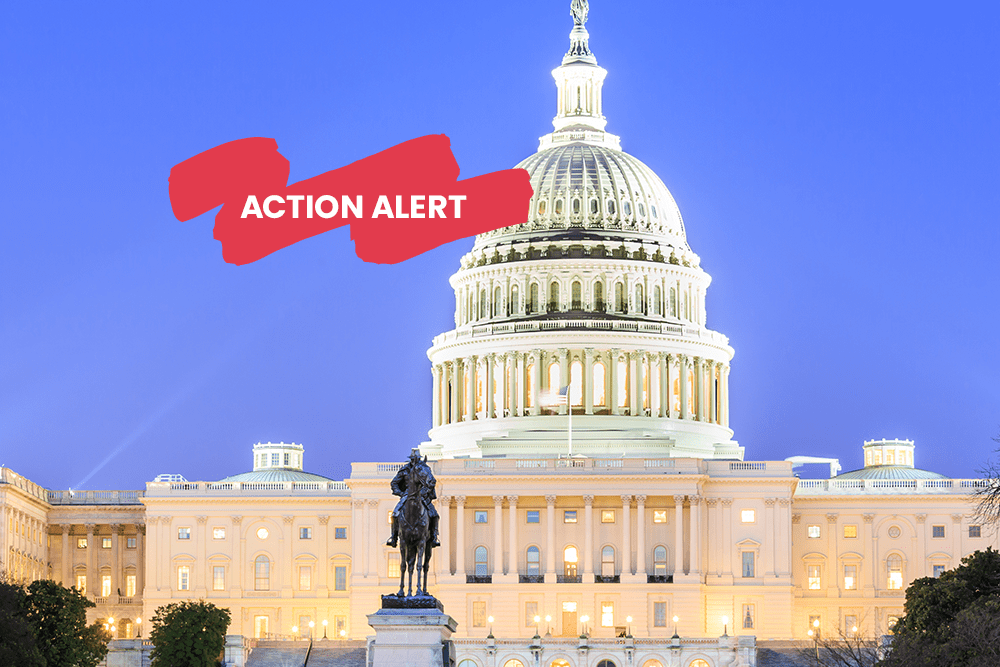Advocacy
Food Allergy Advocacy
Food allergy – a potentially life-threatening condition with no known cure – affects millions of people in the U.S. About 20 million people have food allergies in the U.S., including about 4 million U.S. children.1,2
A food allergy occurs when the body’s immune system sees a certain food as harmful and reacts by causing symptoms. This is an allergic reaction. Allergic reactions can involve the skin, mouth, eyes, lungs, heart, gut, and brain.
Mild and severe symptoms can lead to a serious allergic reaction called anaphylaxis. This reaction usually involves more than one part of the body and can worsen quickly. Anaphylaxis must be treated right away to provide the best chance for improvement and prevent serious, potentially life-threatening complications. Epinephrine is the only treatment for anaphylaxis.
Although much has been learned about food allergy management and treatment, there are still many unanswered questions. Through advocacy, education and research AAFA aims to improve the lives of people all over the U.S. that are living with food allergies.
AAFA’s Food Allergy Advocacy Priorities
AAFA supports policies and laws that save lives and improve the quality of life for millions of individuals and families managing food allergies. AAFA’s food allergy division, Kids with Food Allergies, is an active online community of food allergy advocates. We listen to our community members and other key stakeholders to help identify key advocacy priorities, including:
- Improved food allergen labeling
- Access to epinephrine in schools and other places
- Airline travel safety and accommodations
- Affordable epinephrine and other allergy treatments
- Food allergy research to expand treatment options
- Proper management of food allergies in schools and early child care centers
Closed
AAFA's Position Statements on Food Allergy Policies
AAFA Comments on New Model for School Health Services in DC
AAFA provided comments expressing concern over the new model for school health services that will be implemented in D.C. public schools and public charter schools starting in January 2017.
AAFA Letter About Rising Costs of Epinephrine Auto-Injectors
AAFA’s former CEO addresses issues of access and affordability of life-saving epinephrine auto-injectors.
Air Travel and Disabilities
AAFA commented to the Department of Transportation explaining why asthma and allergies should be taken into consideration as disabilities during airline travel.
Allergy Protocols in Federal Facilities
AAFA sent a letter to Federal Occupational Health (FOH) in support of epinephrine stocking and improved allergy policies in federal facilities.
South Carolina’s Emergency Anaphylaxis Treatment Act
AAFA sent a letter in support of South Carolina’s Emergency Anaphylaxis Treatment Act, which would expand access to epinephrine in public places.
Food Labeling Modernization Act
AAFA sent a letter to the sponsors of the Food Labeling Modernization Act of 2015 to thank them for introducing the legislation.
FDA Allergenic Products Advisory Committee Spoken Comments
Former AAFA CEO Cary Sennett represented allergy patients’ perspective in testimony before the FDA’s Allergenic Products Advisory Committee.
Institute of Medicine Food Allergy Study
AAFA commented to the Institute of Medicine regarding the study, Food Allergies: Global Burden, Causes, Treatment, Prevention, and Public Policy.
View more position statements and a comment letter from AAFA.
Food Allergy Research
AAFA supports policies that encourage more food allergy related research, including improved nationwide, representative prevalence data. Better data on the prevalence of specific food allergies, including trends over time, can help inform policy and education efforts. In addition, more information about the health, social, and economic impacts of food allergy will allow a better understanding of the scope of challenges that our community brings to our attention every day.
AAFA will work with partners in the food allergy community and with the relevant federal agencies to support implementation of these important goals, including through implementation of the FASTER Act, which requires HHS to report to Congress on ongoing efforts regarding food allergy surveillance and research. In addition, AAFA will draw on new allergy data to help shape ongoing food allergy policy at the federal and state levels.
AAFA Co-Sponsored Report with the National Academies of Science, Engineering, and Medicine
Federal Publications and Resources
This food allergy fact sheet from the Food and Drug Administration provides what you need to know about food allergies, FDA labeling and what to do if an allergic reaction occurs.
Guidelines for the Diagnosis and Management of Food Allergy in the United States
The National Institute of Allergy and Infectious Diseases (NIAID) worked with more than 30 professional organizations, federal agencies and patient advisory groups to develop a list of “best practice” clinical guidelines for the diagnosis and treatment of food allergies. These guidelines were developed for allergists/immunologists, clinical researchers and practitioners.
Guidelines for the Diagnosis and Management of Food Allergy in the United States: Summary for Patients, Families and Caregivers
The National Institute of Allergy and Infectious Diseases (NIAID) worked with many professional organizations, federal agencies and patient advocacy groups to develop guidelines on food allergy for health care professionals. This booklet summarizes these guidelines and encourages patient-doctor conversations about food allergy. This booklet is meant to provide patients, families and caregivers with the knowledge they need to manage their food allergies.
References
1. Ng, A.E. & Boersma, P. (2023). NCHS Data Brief, no 460: Diagnosed allergic conditions in adults: United States, 2021. National Center for Health Statistics. https://dx.doi.org/10.15620/cdc:122809
2. Zablotsky, B., Black, L.I., & Akinbami, L.J.(2023). NCHS Data Brief, no 459: Diagnosed allergic conditions in children aged 0-17 years: United States, 2021. National Center for Health Statistics. https://dx.doi.org/10.15620/cdc:123250












